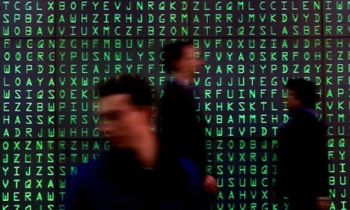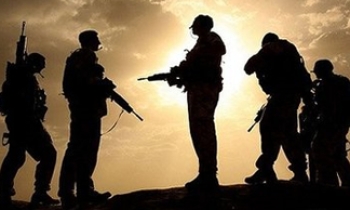What are the long-term consequences of the Prophet Mohammed cartoon furor? I predict it is helping bring on not a clash of civilizations, but their mutual pulling apart. This separation, which has been building for years, has dreadful implications.
Signs of disengagement are all around.
Trade: Boycotts now exist in both directions. Even as the U.S. government sanctions Iranian products, Iranian President Mahmoud Ahmadinejad says his government will "revise and cancel economic contracts" with countries where newspapers published the cartoons. Several Muslim countries have suspended trade with Denmark, while Muslim-owned stores in Canada have removed Danish products. The Pakistani medical association even announced a boycott of medicines from five European countries.
Consumer items: Muslims are increasingly replacing Western consumer items with their own. They purchase the extremely modest Fulla and Razanne dolls rather than the busty Barbie. In France, Beurger King provides halal food, competing with Burger King, just as Mecca Cola takes the place of Coke and Pepsi. Al-Jazeera is starting an English-language channel to go up against CNN and the BBC.
Financial investments: As a result of freezes on funds and the designation of terrorist entities, Muslims have moved large amounts of capital out of the West and invested these in their own countries or in other places such as East Asia. Middle Eastern oil exporters before 9/11 annually put as much as $25-billion (U.S.) into American investments; since then, the amount is about $1-billion a year.
Emigration: The 9/11 attacks caused a significant increase in obstacles to Muslims travelling to the West, so fewer Muslim business executives, students, hospital patients, conference-goers, and workers are going there.
Tourism: Islamist atrocities -- such as the murder of 60 Japanese, German, and Swiss tourists in Luxor in 1997 or the abduction of 32 German and other travellers in the Sahara in 2003 -- had already led some Westerners to avoid discretionary travel in the Muslim world. Cartoon-related violence has prompted a Danish advisory warning citizens against travelling to 14 Muslim countries. Scandinavian tourist companies have cancelled many tours to North Africa.
Foreign aid: Muslim aggression against aid workers in Indonesia, Lebanon and Pakistan have led to the partial or complete withdrawal of European missions. In Chechnya, the Danish aid mission was expelled; the Iraqi transport ministry has rejected Danish reconstruction money.
Embassies: From the seizure of the U.S. embassy in Tehran in 1979 to the multiple attacks on Danish and other European embassies this month, the assault on Western diplomatic missions in Muslim countries is causing them to take on the features of armed fortresses, to be removed from the centre of towns and, in some cases, to be closed.
These developments suggest what Malaysian Prime Minister Abdullah Ahmad Badawi has called a "huge chasm" between the Muslim world and the West. Or in the more bellicose wording of influential Sunni imam Yusuf al-Qaradawi: "We must tell Europeans, we can live without you. But you cannot live without us."
Should the chasm widen, with its concomitant lessening of human interaction, commercial relations and diplomatic engagement, the Muslim world is likely to fall further behind than it already has. As I wrote in 2000, "Whatever index one employs, Muslims can be found clustering toward the bottom -- whether measured in terms of their military prowess, political stability, economic development, corruption, human rights, health, longevity, or literacy."
Disengagement will only worsen the Muslim predicament. Reduced contact with the world's most modern, powerful and advanced countries would likely cause Muslims to do even worse in those indices and lapse deeper into a condition characterized by self-pity, jealousy, resentment, anger and aggression.
Especially when contrasted with Muslim successes in pre-modern times, these traumatic circumstances help explain the crisis in identity that often causes Muslims to seek solace in radical Islam. For everyone's sake, it is important that Muslims begin more successfully to negotiate their path to modernity, not to isolation.
Daniel Pipes is director of the Philadelphia-based Middle East Forum.









